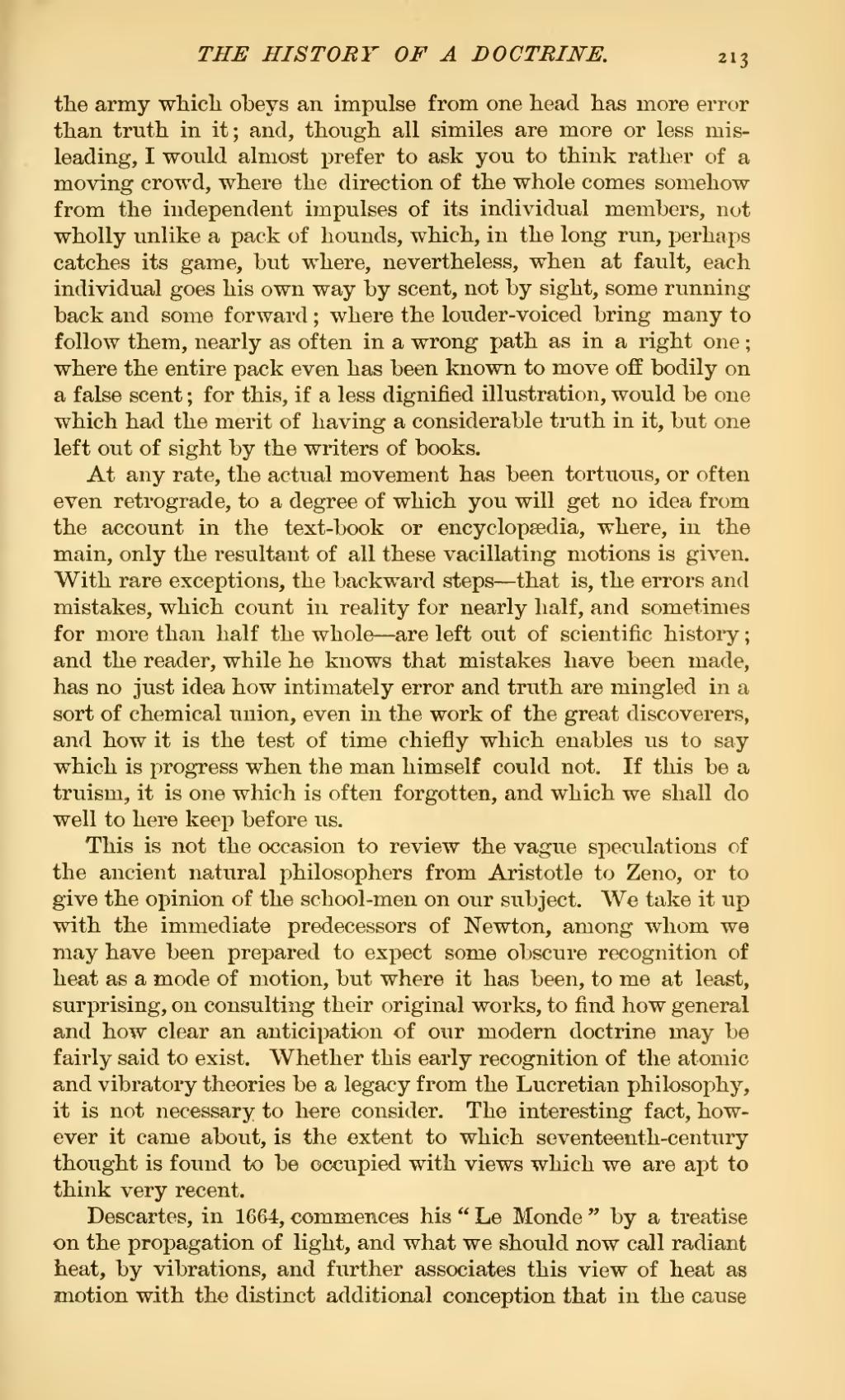the army which obeys an impulse from one head has more error than truth in it; and, though all similes are more or less misleading, I would almost prefer to ask you to think rather of a moving crowd, where the direction of the whole comes somehow from the independent impulses of its individual members, not wholly unlike a pack of hounds, which, in the long run, perhaps catches its game, but where, nevertheless, when at fault, each individual goes his own way by scent, not by sight, some running back and some forward; where the louder-voiced bring many to follow them, nearly as often in a wrong path as in a right one; where the entire pack even has been known to move off bodily on a false scent; for this, if a less dignified illustration, would be one which had the merit of having a considerable truth in it, but one left out of sight by the writers of books.
At any rate, the actual movement has been tortuous, or often even retrograde, to a degree of which you will get no idea from the account in the text-book or encyclopædia, where, in the main, only the resultant of all these vacillating motions is given. With rare exceptions, the backward steps—that is, the errors and mistakes, which count in reality for nearly half, and sometimes for more than half the whole—are left out of scientific history; and the reader, while he knows that mistakes have been made, has no just idea how intimately error and truth are mingled in a sort of chemical union, even in the work of the great discoverers, and how it is the test of time chiefly which enables us to say which is progress when the man himself could not. If this be a truism, it is one which is often forgotten, and which we shall do well to here keep before us.
This is not the occasion to review the vague speculations of the ancient natural philosophers from Aristotle to Zeno, or to give the opinion of the school-men on our subject. We take it up with the immediate predecessors of Newton, among whom we may have been prepared to expect some obscure recognition of heat as a mode of motion, but where it has been, to me at least, surprising, on consulting their original works, to find how general and how clear an anticipation of our modern doctrine may be fairly said to exist. Whether this early recognition of the atomic and vibratory theories be a legacy from the Lucretian philosophy, it is not necessary to here consider. The interesting fact, however it came about, is the extent to which seventeenth-century thought is found to be occupied with views which we are apt to think very recent.
Descartes, in 1664, commences his "Le Monde" by a treatise on the propagation of light, and what we should now call radiant heat, by vibrations, and further associates this view of heat as motion with the distinct additional conception that in the cause

